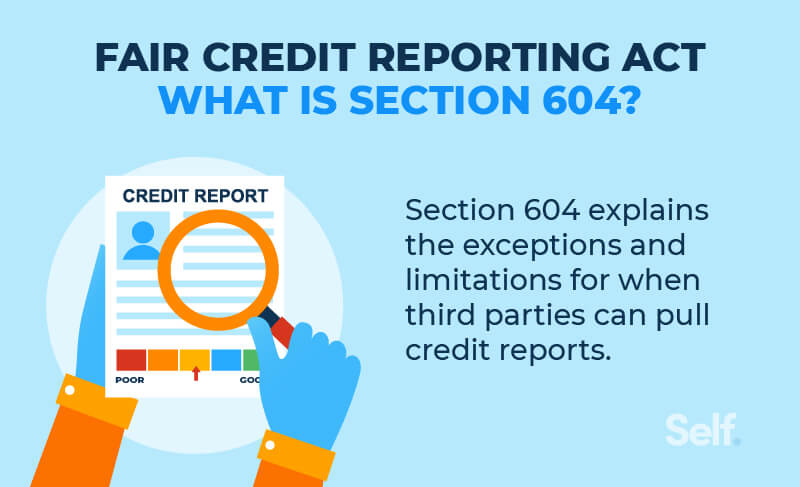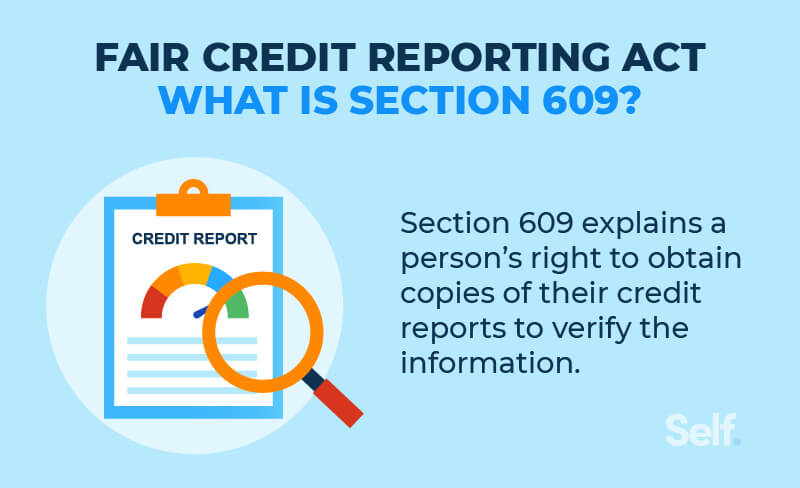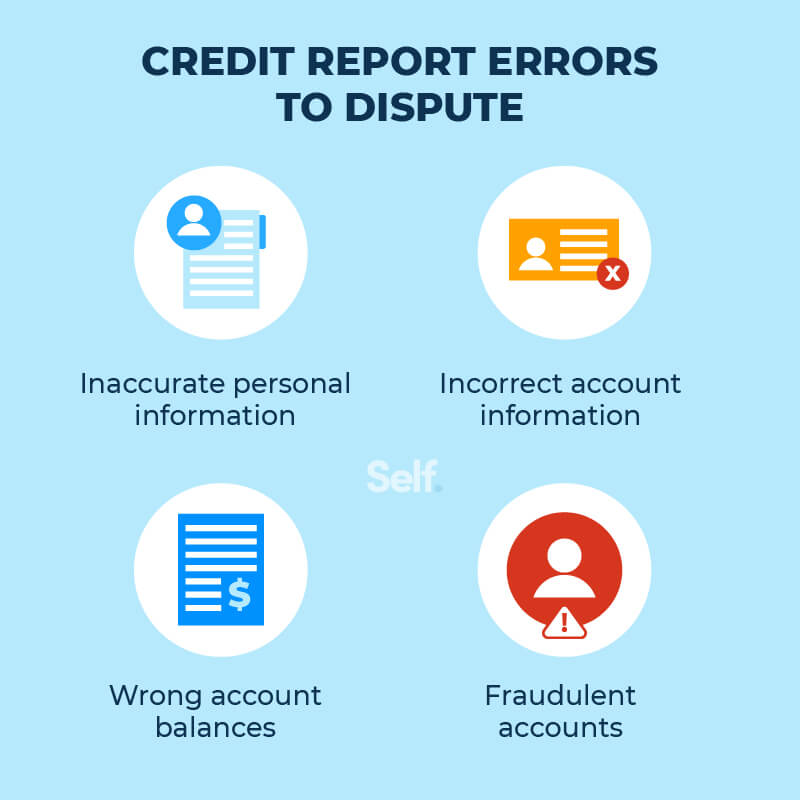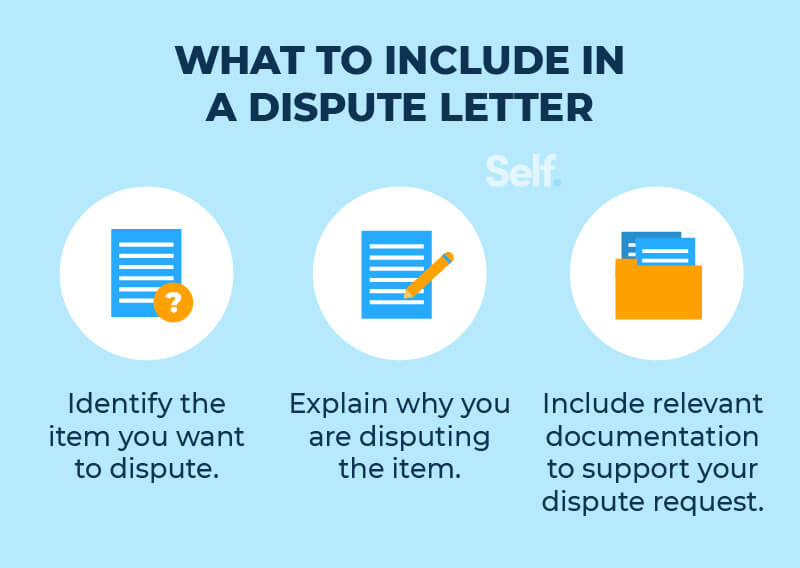FCRA Section 604 vs. 609: Which Supports Your Dispute Letter?
Published on: 11/07/2025
Section 604 and Section 609 of the Fair Credit Reporting Act (FCRA) have similar numbers and refer to consumer reports and/or disclosures. As a result, they’re often confused. But they have different purposes, and only Section 609 will support a dispute letter.
Under the FCRA, Section 604 defines the circumstances under which a consumer reporting agency may furnish a consumer report.[1] This section is titled “Permissible purposes of consumer reports.”
In short, Section 604 covers other agencies and entities that want to see your credit report, while Section 609 deals with your right to see it.
Key points
- Section 604 regulates who can access your credit report, while Section 609 guarantees your right to receive the information in your credit file.
- A 609 letter can help you obtain detailed credit information that may not appear in standard free credit reports, making it easier to identify potential errors.
- Credit bureaus must investigate disputes within 30 days (under certain circumstances 45) and notify you of results within five business days of completing their review.

Section 604
Section 604 describes when credit bureaus are allowed to release your credit information to different entities, such as:
- Prospective lenders or creditors
- Potential employers
- State child-support enforcement agencies
- In response to a court order or subpoena
- The Federal Deposit Insurance Corporation (FDIC) or National Credit Union Administration (NCUA) in the role of conservator, receiver, or liquidating agent for an insured deposit.

Section 609
Section 609 states that consumer reporting agencies (credit bureaus) are obligated to provide a consumer with all the information in their credit file except:
- The first five digits of the consumer’s Social Security number.
- Anything concerning credit scores or “other risk scores or predictions relating to the consumer.”[1]
A 609 request can provide you with the source of the information on your credit report as well as the identity of anyone who has obtained a copy of the report for employment purposes over the previous two years and for any other purpose over the previous year. You should also learn the identities of businesses that have made soft inquiries into your reports in the past year (as opposed to hard inquiries — such as would result when you apply for a new line of credit or a loan).
What is a 609 letter?
A 609 letter is a document you can use to contact the three major credit bureaus (Equifax, Experian, and TransUnion) to request a copy of your credit reports.
You can get a free credit report every week from each of the three major credit bureaus at annualcreditreport.com.
A 609 letter can also allow you to request information that may not be included in a free copy of your credit report. Under 609 you can request (a) all information in your file at that time, (b) the sources of that information, and (c) the identities of recipients of your consumer report within the statutory lookback periods. Such information can prove useful in identifying and, if necessary, disputing any inaccuracies you may find on your credit report.
The 609 letter itself is not a dispute letter. But it can be used to access information that will allow you to identify errors — if you find any. This, in turn, can form the basis for a dispute letter. The following is a sample letter.

Check the accuracy of your credit reports
When going through your credit report, there are a number of potential errors to lookout for. Credit information from someone else with a similar name, address, or Social Security number might show up on your report. You may not have been properly credited for an account you paid off, or perhaps a debt was improperly listed more than once.
Other inaccurate information to keep an eye on includes potential balance errors and data mistakes, such as incorrect credit limits.
You may be a victim of fraud or identity theft, or you may just have inaccurate negative items in your credit history.
A 2024 study by Consumer Reports and WorkMoney found that 44% of participants who checked their credit reports discovered at least one error, with 27% finding serious account information errors such as unrecognized accounts, incorrect late payment reports, or debts incorrectly listed in collections.[2] These findings underscore the importance of regularly reviewing your credit reports for accuracy, as errors can have a significant impact on your credit score and limit access to affordable credit, employment opportunities, and housing.
Dispute errors on your credit report
You can dispute errors on your credit report by contacting the credit bureaus, explaining the reasoning for the dispute in a credit dispute letter, and waiting for the dispute review process to conclude. Typically, the credit bureaus will have 30 days from receiving your dispute to review it. However, if you send the credit bureaus more information regarding your dispute, it may take them an additional 15 days, totaling 45 days. The credit bureaus must notify you of their findings within five business days of completing the investigation.[1]

When filing a credit report dispute, you can contact the credit bureaus by phone, online, or by mail.
You’ll want to include information such as letters from creditors with information on how your account should be corrected, documents showing deferment or forbearance, or canceled checks showing payments for which you haven’t been credited. If you have been a victim of fraud, it is important to include a copy of the FTC identity theft report or policy report showing that your account has been compromised.
You can pay a credit repair company to file a dispute for you, but a credit repair company can’t do anything you yourself can’t do for free. You can’t remove negative information if it’s accurate, and neither can they. If they say they can, or offer you guarantees, that’s a red flag. There are credit repir scams out there that might ask you to pay upfront or dispute accurate information on your credit report.
Scams that promise you a new identity or advise you to provide false information could even involve you unwittingly in identity theft and implicate you in a crime that can lead to jail time.[3]
Review your credit report
A 609 letter can help you verify information and identify errors on your credit report. It can also uncover “hidden” details that don’t show up in your free credit report. Section 604 explains the circumstances in which the credit bureaus can release your credit information to various entities.
If you find inaccurate information, you can dispute it with the credit bureaus and potentially improve your credit score by removing negative marks that are inaccurate and/or are the result of fraud.
Sources
- Federal Trade Commission. "Fair Credit Reporting Act," https://www.ftc.gov/system/files/ftc_gov/pdf/fcra-may2023-508.pdf. Accessed May 2023.
- Consumer Reports and WorkMoney. "Almost half of participants in Credit Checkup study find errors on credit reports; more than a quarter find serious mistakes," https://advocacy.consumerreports.org/press_release/almost-half-of-participants-in-credit-checkup-study-find-errors-on-credit-reports-more-than-a-quarter-find-serious-mistakes/. Accessed April 30, 2024.
- Federal Trade Commission. “Debt Relief and Credit Repair Scams,” https://www.ftc.gov/news-events/media-resources/consumer-finance/debt-relief-credit-repair-scams. Accessed February 4, 2022.
About the author
Jeff Smith is the VP of Marketing at Self Financial. See his profile on LinkedIn.
About the reviewer
Ana Gonzalez-Ribeiro, MBA, AFC® is an Accredited Financial Counselor® and a Bilingual Personal Finance Writer and Educator dedicated to helping populations that need financial literacy and counseling. Her informative articles have been published in various news outlets and websites including Huffington Post, Fidelity, Fox Business News, MSN and Yahoo Finance. She also founded the personal financial and motivational site www.AcetheJourney.com and translated into Spanish the book, Financial Advice for Blue Collar America by Kathryn B. Hauer, CFP. Ana teaches Spanish or English personal finance courses on behalf of the W!SE (Working In Support of Education) program has taught workshops for nonprofits in NYC.
